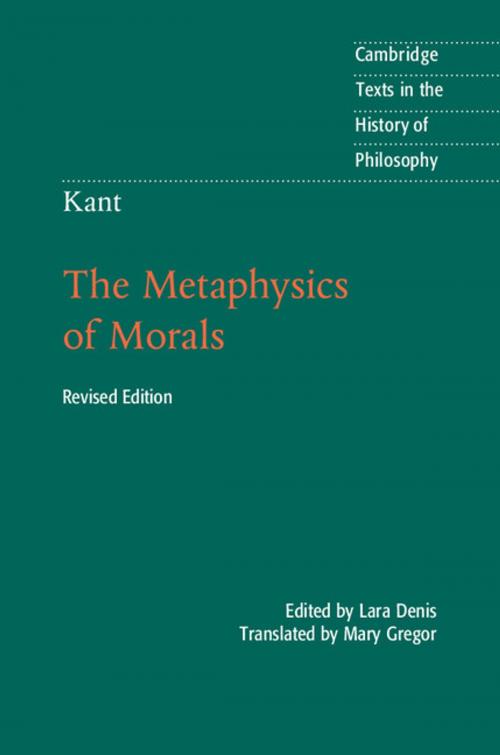Kant: The Metaphysics of Morals
Nonfiction, Religion & Spirituality, Philosophy, Ethics & Moral Philosophy| Author: | Immanuel Kant | ISBN: | 9781316863152 |
| Publisher: | Cambridge University Press | Publication: | September 30, 2017 |
| Imprint: | Cambridge University Press | Language: | English |
| Author: | Immanuel Kant |
| ISBN: | 9781316863152 |
| Publisher: | Cambridge University Press |
| Publication: | September 30, 2017 |
| Imprint: | Cambridge University Press |
| Language: | English |
The Metaphysics of Morals is Kant's final major work in moral philosophy. In it, he presents the basic concepts and principles of right and virtue and the system of duties of human beings as such. The work comprises two parts: the Doctrine of Right concerns outer freedom and the rights of human beings against one another; the Doctrine of Virtue concerns inner freedom and the ethical duties of human beings to themselves and others. Mary Gregor's translation, lightly revised for this edition, is the only complete translation of the entire text, and includes extensive annotation on Kant's difficult and sometimes unfamiliar vocabulary. This edition includes numerous new footnotes, some of which address controversial aspects of Gregor's translation or offer alternatives. Lara Denis's introduction sets the work in context, explains its structure and themes, and introduces important interpretive debates. The volume also provides thorough guidance on further reading including online resources.
The Metaphysics of Morals is Kant's final major work in moral philosophy. In it, he presents the basic concepts and principles of right and virtue and the system of duties of human beings as such. The work comprises two parts: the Doctrine of Right concerns outer freedom and the rights of human beings against one another; the Doctrine of Virtue concerns inner freedom and the ethical duties of human beings to themselves and others. Mary Gregor's translation, lightly revised for this edition, is the only complete translation of the entire text, and includes extensive annotation on Kant's difficult and sometimes unfamiliar vocabulary. This edition includes numerous new footnotes, some of which address controversial aspects of Gregor's translation or offer alternatives. Lara Denis's introduction sets the work in context, explains its structure and themes, and introduces important interpretive debates. The volume also provides thorough guidance on further reading including online resources.















